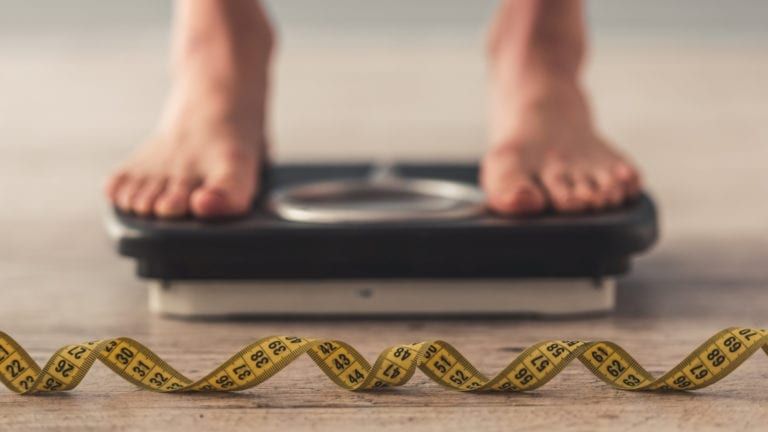Is There A Relationship Between BMI and Back Pain?

Obesity is a condition that has been known to have multiple detrimental effects to our health, including playing a role in colon cancer, diabetes, coronary heart disease, even high blood pressure. Considering the amount of strain carrying extra weight puts on our bodies, it should come as no surprise that obesity has been identified as a contributing factor in back pain.
How Does Being Overweight Affect The Spine?
Obesity has a strong association with a number of diseases of the bone, muscle, and other soft-tissues. These issues include osteoporosis, rheumatoid arthritis, spinal stenosis, osteoarthritis, and spondylolisthesis, among other concerns. Obesity changes the way weight is distributed on the body, forcing the spine to change its shape to carry the burden. As this continues, it can lead to damage to the spine, especially in the lower back.
Can Exercise Help My Spine?
Exercise continues to be the most important part of protecting your spine. Our sedentary lifestyle causes us to lose flexibility, especially in the pelvis, thighs, and back. As we lose flexibility and the muscles in the lower back weaken, the curve in the lower back can grow, causing the pelvis to rotate forward and out of position. As this continues to advance, our posture gets weaker, and pain can spread from the lower back to the spine.
Is Back Pain Inevitable With Age?
Our bodies change as we age, and the changes that happen in our tissues can cause concerns with our spinal anatomy. This doesn’t mean that back pain is inevitable as we age, but obesity greatly increases the likelihood that we will experience problems as time goes on. Obesity, combined with the natural aging process, can increase instances of:
-
Poor Posture: Being physically fit helps to maintain our spinal strength, avoiding unhealthy posture and the back and neck pain that results.
-
Lower Back Pain: Obesity has been shown to cause lower back pain to worsen and regularly recur. Losing weight reduces both recurrence and overall back pain in many patients.
-
Osteoporosis: Obesity is often accompanied by being sedentary and having a poorly balanced diet. This can have a direct effect on the durability of the bones due to a reduction in bone density. With the demand on the spine, this can lead to fractures in the vertebrae that can cause disability and significant pain.
What Causes Obesity?
Obesity has been a growing problem as convenience foods like microwave meals and fast food have become more available. So affordable and available have these foods become that little to no effort is actually required in the preparation of a meal. Further, mass production and low-quality ingredients make these foods more affordable than healthier choices. All of these have contributed to people gaining weight as they lean more and more on these options. An increasingly sedentary lifestyle has contributed, as well.
If you’re experiencing lower back pain or obesity and want to get help, contact Dr. Tom Bromberg today. The team at Delaware Valley Pain and Spine Institute in Chalfont, PA, help our patients address spinal concerns so they can live a long and healthy life free from back pain. Call today to start taking steps to preserve your spinal health for years to come.


Recent Comments